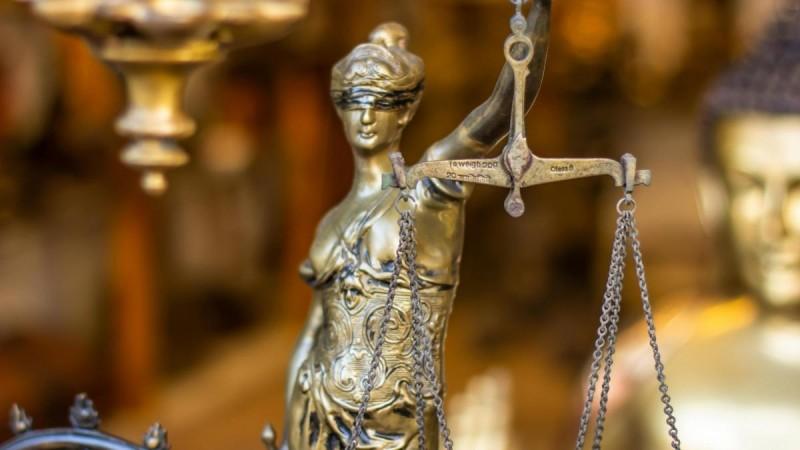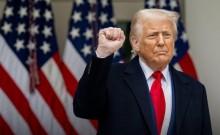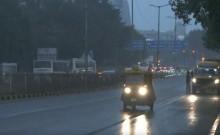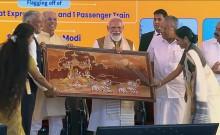
On 23 August 2025 in Panaji, Chief Justice of India B.R. Gavai reminded the nation of a principle that is as old as the Constitution itself yet increasingly tested in contemporary India: the separation of powers. His remarks, calm yet weighted, came at a time when faith in democratic institutions is under renewed scrutiny. He emphasised that the judiciary must remain insulated from political currents, independent of executive pressures, and firm in its role as the guardian of constitutional values. Such an assertion, though not unprecedented, resonated with urgency because of the many recent controversies that have cast shadows on the judiciary's ability to act as a counterweight to government excesses.
The real debate today is not whether the Constitution envisions separation of powers; that is beyond doubt. The debate is whether the institutional guardians of that separation are performing their roles with the courage, timeliness, and accountability demanded by citizens. A judiciary that delays, hesitates, or appears to bend risks diluting the very bulwark that protects democracy from executive overreach.
Suo Motu Silence and Cases Left on the Slow Burner
If the judiciary is meant to be the sentinel on the qui vive, silence in the face of pressing injustice is as troubling as overreach. Several cases in recent years called for the Supreme Court to act suo motu but did not see the urgency they warranted. Issues of communal violence, bulldozer demolitions, surveillance through Pegasus spyware, and attacks on press freedom raised fundamental constitutional questions. Yet, many of these were either not taken up expeditiously or kept pending without final resolution.
This delay has real consequences. Justice deferred on questions of liberty, equality, or misuse of state machinery is justice denied. For instance, the Delhi government versus Lieutenant Governor case on control over officers was allowed to fester for years before the Court finally reaffirmed that an elected government must have the authority to control its officers, save for matters of public order, police, and land. The decision was clear and emphatic, but the years of administrative uncertainty weakened governance in the capital and emboldened the Centre to repeatedly test the limits of federalism.
The larger concern is one of prioritisation. Cases with direct bearing on constitutional governance are sometimes kept on the backburner while less urgent matters are swiftly listed and decided. This inconsistency fuels public doubt about whether the judiciary is consistently fulfilling its constitutional mandate.
Pendency and the Weight of Delay
India's judiciary today faces a backlog of nearly five crore cases across all levels. The Supreme Court alone has more than 80,000 pending matters, many involving constitutional questions critical to the nation's future. While pendency is a systemic issue, it also reflects the judiciary's internal management and its willingness to address cases of wide public interest with urgency.
CJI Gavai himself has acknowledged the crushing pendency but has also called for systemic reforms including technology adoption, greater infrastructure, and judicial accountability. Yet, citizens ask: why are cases that could shape democratic balance not listed on priority? Why does a matter like electoral bonds, with its deep implications for transparency in political funding, wait years before final judgment?
A judiciary strained by numbers risks becoming reactive rather than proactive, unable to intervene swiftly when the executive crosses its bounds. Pendency is thus not just an administrative problem; it is a constitutional one.
The Historic Press Briefing and a Warning Unheeded
The public memory of January 2018 remains vivid. Four of the senior-most judges of the Supreme Court — Justices J. Chelameswar, Ranjan Gogoi, Madan Lokur, and Kurian Joseph held an unprecedented press conference, warning that democracy itself was in danger if the functioning of the Court did not improve. They pointed to the arbitrary allocation of sensitive cases and the lack of transparency in judicial administration.
That press briefing should have marked a watershed moment of reform. Instead, the years since have seen continued concerns about the opacity of judicial appointments, inconsistent case listings, and perceptions of selectivity in how justice is delivered. The warning of those four judges rings even more loudly today, especially when public trust is strained by controversies.
The NJAC and the Continuing Debate on Appointments
One of the most contested issues of judicial independence remains the method of appointing judges. Parliament attempted to replace the collegium system with the National Judicial Appointments Commission (NJAC), providing a greater role for the executive and legislature. In 2015, the Supreme Court struck it down as unconstitutional, arguing that judicial primacy in appointments is essential to protect independence.
The decision was principled, but the collegium system itself continues to face criticism for opacity and insularity. Moreover, controversies over appointments, such as Justice B.V. Nagarathna's objection to the elevation of Justice Gourav Pancholi, or allegations of politically connected individuals being considered for judgeships erode faith in the system. The question remains unresolved: how does one ensure both independence and accountability without allowing either judicial monopoly or executive capture?
Exclusion of CJI from the Election Commission Selection Panel
The recent decision of Parliament to exclude the Chief Justice of India from the panel appointing the Chief Election Commissioner and Election Commissioners has raised alarms about the erosion of checks and balances. For decades, the demand has been for broader representation in such appointments to ensure the Election Commission remains impartial. Instead, the exclusion of the judiciary reduces oversight at a time when electoral processes themselves are under strain.
This development highlights how the executive, with parliamentary majority, can alter institutional design to its advantage, unless other institutions assert their constitutional role.
Judges and the Shadow of Controversy
The judiciary's moral authority depends not only on judgments but on the perceived integrity of judges. Unfortunately, recent years have seen controversies that cast shadows on this authority. The case of Justice S.N. Shukla facing corruption charges, the controversies around Justice Yadav and Justice Verma, or allegations of judges being protected despite questionable conduct have all raised difficult questions.
Worse still, reports of tainted judges being shielded by the system, or recovery of unexplained wealth including caches of burnt notes, weaken the public's faith. The judiciary must be doubly vigilant in holding its own members to account, for no institution that hesitates to cleanse itself can credibly hold others to constitutional standards.
Improper Functioning of Governments and the Judiciary's Role
While criticism of the judiciary is necessary, one must not lose sight of the larger context: the improper functioning of governments, both at the Centre and in states, is the root cause of many disputes. Excessive use of bulldozers for demolition without due process, arbitrary arrests under stringent laws like UAPA, curbs on internet freedom, and prolonged detention without trial all demand judicial intervention.
It is the executive's overreach often justified under the guise of majoritarian mandate that places extraordinary responsibility on the judiciary. The Court is not merely an umpire between litigants; it is the guardian of the Constitution against state misuse of power. Whenever the executive acts with impunity, judicial vigilance becomes not optional but imperative.
The Way Forward: Restoring Faith and Balance
The speech of CJI B.R. Gavai in Panaji should not be read merely as a reminder of constitutional theory. It must be seen as a call to action. If separation of powers is to be real, three imperatives follow:
1. Judicial Courage and Timeliness
Courts must act with urgency in matters of constitutional importance. Suo motu interventions should be exercised to check executive excesses, and pendency of vital cases must be addressed with systemic prioritisation.
2. Transparent and Accountable Appointments
The collegium system must be reformed to ensure openness, meritocracy, and insulation from both political interference and internal favouritism.
3. Integrity and Public Trust
Allegations of corruption, misconduct, or questionable behaviour by judges must be addressed swiftly and publicly. Self-regulation is essential for moral authority.
4. Executive Restraint
The government must respect constitutional limits and avoid undermining institutions. Majorities in Parliament should not be used to erode checks and balances.
The health of a democracy depends not only on the text of its Constitution but on the living practices of its institutions. Today, both government and judiciary stand at a crossroads. The government must curb its impulses for overreach, and the judiciary must overcome its silences, delays, and internal controversies to reassert its role as the ultimate guardian of constitutionalism.
Chief Justice Gavai's reminder in Panaji carries weight because it is both timely and timeless. The separation of powers is not an abstract doctrine. It is the lived guarantee of liberty, equality, and justice for every citizen. If governments misuse power and the judiciary remains hesitant, democracy itself stands imperilled. The moment calls for renewed courage, accountability, and vision from both institutions for only then can the promise of the Constitution remain alive.
[Major General Dr Dilawar Singh, a Ph.D. with multiple postgraduate degrees, is a seasoned expert with over four decades of experience in military policy formulation and counter-terrorism. He has been the National Director General in the Government of India. With extensive multinational exposure at the policy level, he is the Senior Vice President of the Global Economist Forum, AO, ECOSOC, United Nations. He is serving on numerous corporate boards. He has been regularly contributing deep insights into geostrategy, global economics, military affairs, sports, emerging technologies, and corporate governance.]
















